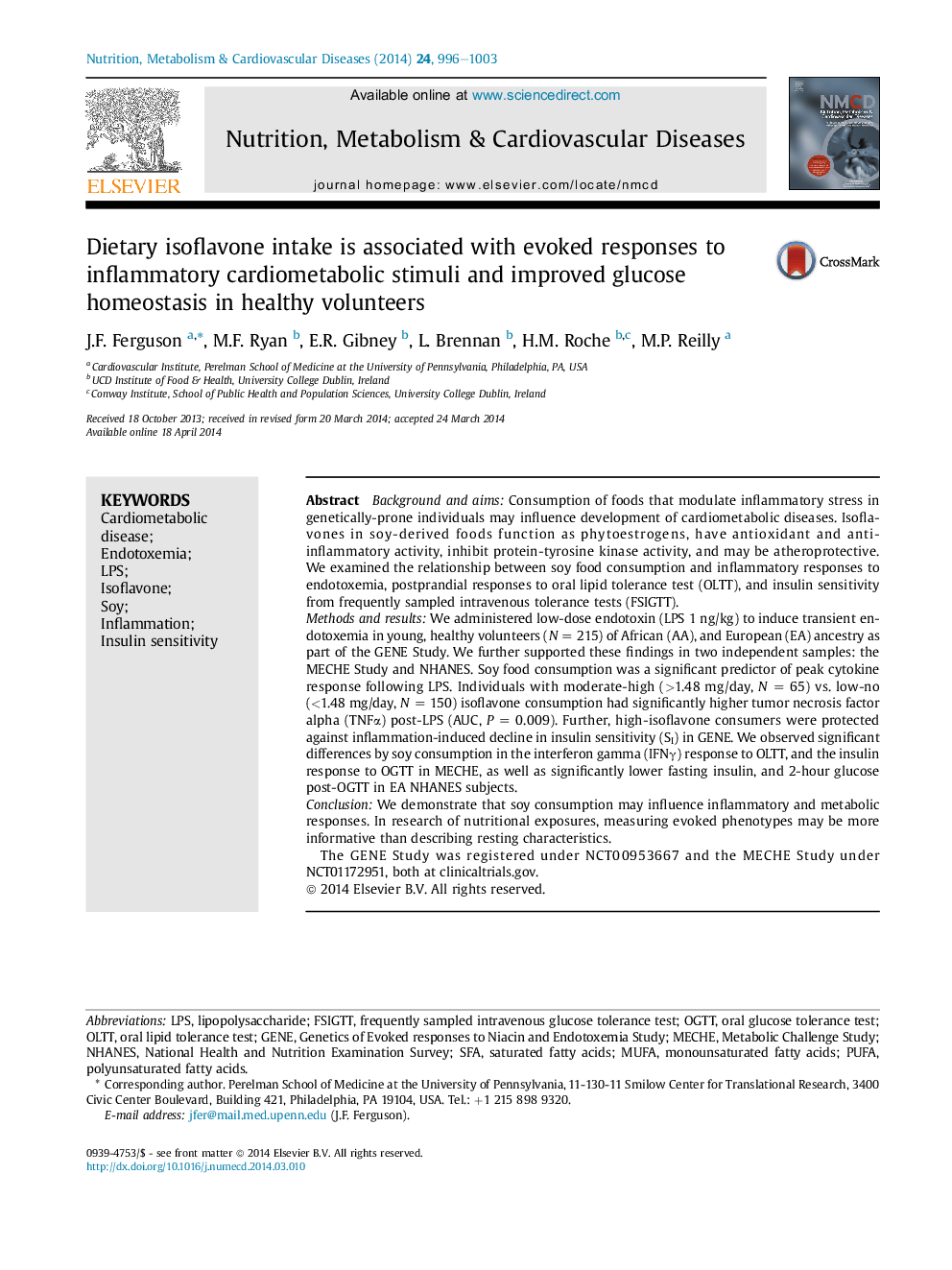| کد مقاله | کد نشریه | سال انتشار | مقاله انگلیسی | نسخه تمام متن |
|---|---|---|---|---|
| 5996663 | 1180692 | 2014 | 8 صفحه PDF | دانلود رایگان |
Background and aimsConsumption of foods that modulate inflammatory stress in genetically-prone individuals may influence development of cardiometabolic diseases. Isoflavones in soy-derived foods function as phytoestrogens, have antioxidant and anti-inflammatory activity, inhibit protein-tyrosine kinase activity, and may be atheroprotective. We examined the relationship between soy food consumption and inflammatory responses to endotoxemia, postprandial responses to oral lipid tolerance test (OLTT), and insulin sensitivity from frequently sampled intravenous tolerance tests (FSIGTT).Methods and resultsWe administered low-dose endotoxin (LPS 1 ng/kg) to induce transient endotoxemia in young, healthy volunteers (N = 215) of African (AA), and European (EA) ancestry as part of the GENE Study. We further supported these findings in two independent samples: the MECHE Study and NHANES. Soy food consumption was a significant predictor of peak cytokine response following LPS. Individuals with moderate-high (>1.48 mg/day, N = 65) vs. low-no (<1.48 mg/day, N = 150) isoflavone consumption had significantly higher tumor necrosis factor alpha (TNFα) post-LPS (AUC, P = 0.009). Further, high-isoflavone consumers were protected against inflammation-induced decline in insulin sensitivity (SI) in GENE. We observed significant differences by soy consumption in the interferon gamma (IFNγ) response to OLTT, and the insulin response to OGTT in MECHE, as well as significantly lower fasting insulin, and 2-hour glucose post-OGTT in EA NHANES subjects.ConclusionWe demonstrate that soy consumption may influence inflammatory and metabolic responses. In research of nutritional exposures, measuring evoked phenotypes may be more informative than describing resting characteristics.The GENE Study was registered under NCT00953667 and the MECHE Study under NCT01172951, both at clinicaltrials.gov.
Journal: Nutrition, Metabolism and Cardiovascular Diseases - Volume 24, Issue 9, September 2014, Pages 996-1003
